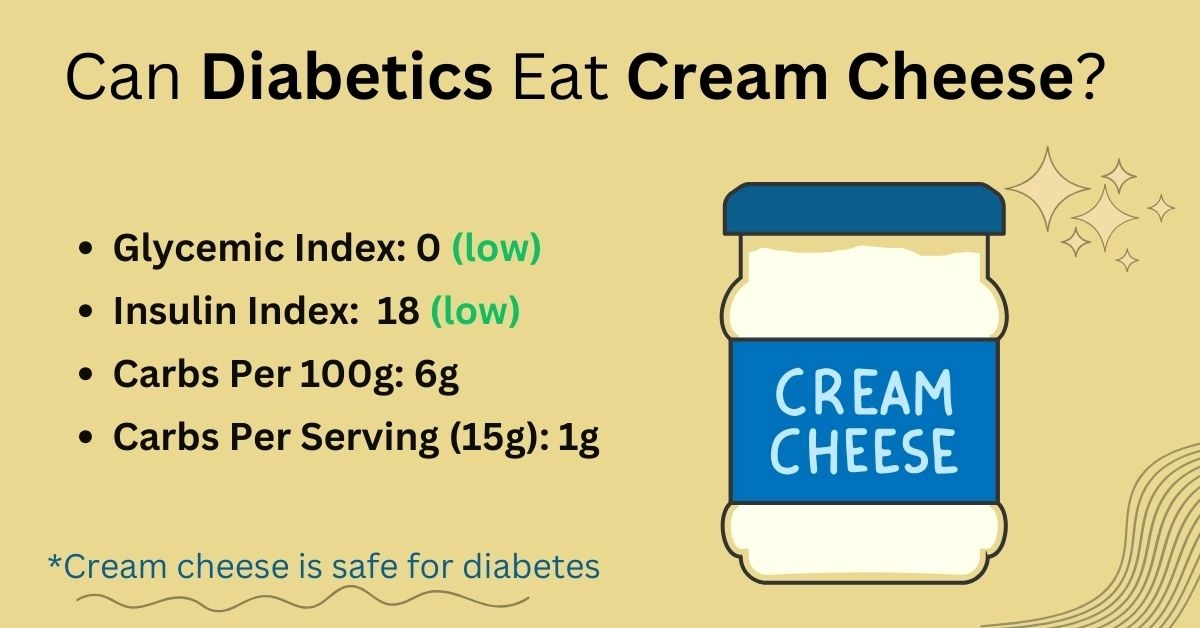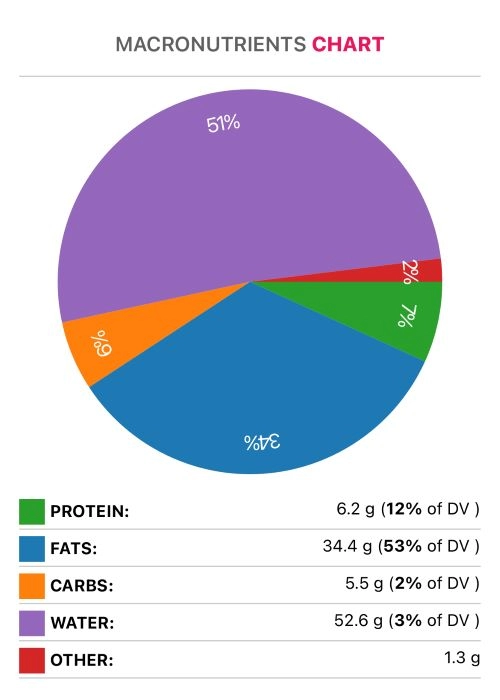Cream cheese and Diabetes - Is it Good For Diabetics

Introduction
People often look for foods that have the property not to cause high spikes in blood glucose levels. One of the best choices for them is cheese. Here, we will discuss the beneficial effects and consuming downsides of cream cheese in the case of diabetes.
Glycemic Index and Carbohydrates
Too many carbs and a high glycemic index can cause blood glucose levels, so it's essential to track what you eat.
Cream cheese has a low carbohydrate content: 5.52g of carbs in 100g. However, cream cheese doesn't provide fiber; all these carbs are net carbs.
Due to its low-carbs and high-fat content, cream cheese's glycemic index is 0.
One small study shows that cream cheese intake has no association with incident prediabetes, a condition where blood glucose level is higher than usual but lower than in type 2 diabetes.
In summary, cream cheese is safe to eat in the case of diabetes, but it is better to be cautious about how much you consume it (1).
You can also check glycemic index values for 350+ foods by visiting the Glycemic index chart.

Type-2 Diabetes
Because cream cheese is made from yogurt and salt, it is safe to say it contains the same nutritional value as yogurt. Although cream cheese has less protein, it does have a moderate amount of sodium and a high amount of saturated fats (95 percent of RDV in 100g) to be aware of․
If cream cheese is eaten with bagels, sandwiches, or cheesecakes, all are high in carbs; it can cause blood sugar spikes.
To summarize, if cream cheese is used correctly, it appears to be a healthier alternative to regular cheese without carbs (2).
